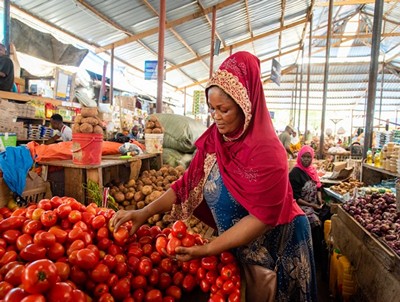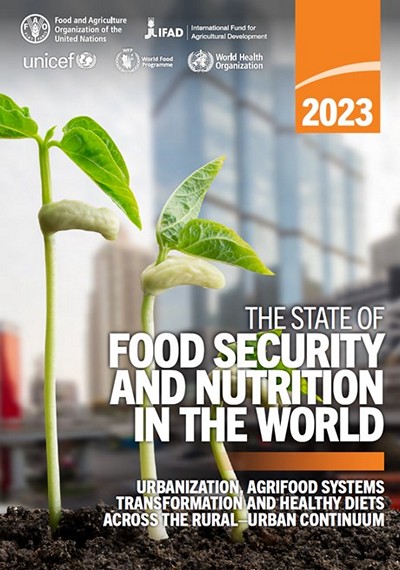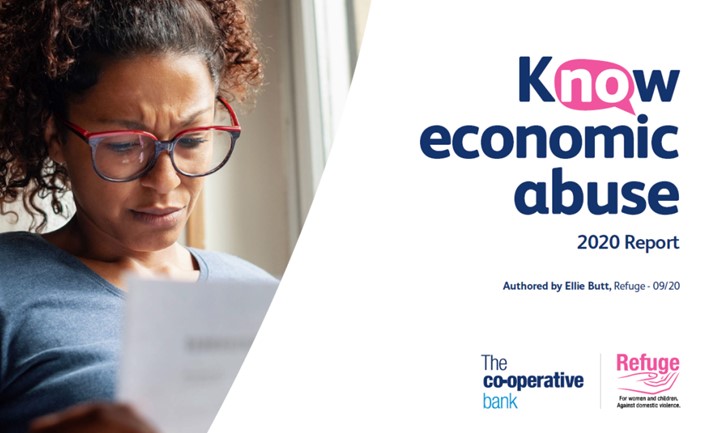Women Are Key to Global Food Systems

World Economic Forum: Women are key to global food systems. Here’s what to know | World Economic Forum (weforum.org)
Women Are Central to Global Food Systems — Men Must Recognize
Director of Programme Services, Global Alliance for Improved Nutrition (GAIN)
Director of Knowledge Leadership, Global Alliance for Improved Nutrition (GAIN)
- Women are integral to our food systems, from planting seeds to leading ministries, but are too often overlooked.
- Women still face limited access to resources, infrastructure and decision-making platforms across the food systems.
- Deepening women’s authority and power within food systems would benefit us all — that means men must take action.
March 8, 2024 – Women have always played a vital role in our food systems, yet their contributions have too often been overlooked or undervalued. From planting seeds, to leading Ministries of Agriculture and UN agencies, and from preserving traditional food cultures, to innovating in food production and processing, women have always been at the forefront of feeding our communities and nurturing our planet. It’s time we recognize and celebrate their invaluable work and strengthen them to take up more leadership positions.
But we cannot simply acknowledge the role of women in food systems and move on. Women still face limited access to resources, infrastructure and decision-making platforms due to the deep-rooted gender disparities that affect their contribution. We must, therefore, create a platform that empowers and supports them.
We believe it is paramount to acknowledge that inviting women to lead is necessary but not sufficient. It is not enough to simply tell women to take the lead, without those in positions of power — often men — taking any action to undo the entrenched and systematic biases that prevent women from reaching leadership positions in the first place.Men, food systems and gender equality
True progress means actively encouraging men to relinquish control, providing women with access to resources, opportunities and leadership roles. It means challenging outdated perceptions and barriers. Instead, we need to promote a culture of inclusive decision making, equality and respect.
This transformation needs a broader shift in power dynamics, where men who are the primary stakeholders in the food systems must proactively shift their perspective and hand over control. That will harness our collective potential to listen to women’s voices and value their perspectives for a sustainable future.
As a medium sized and specialist international NGO, the men at GAIN recognize the importance of gender equality in food systems. We are committed to creating an inclusive and supportive environment where women can thrive by acknowledging the value of diverse leadership.
This means promoting women’s leadership, providing access to professional growth and development, and ensuring equal opportunities for all. We are constantly seeking to challenge the existing stereotypes and ingrained beliefs that perpetuate gender inequalities within the food system and also expect all men in our sphere of influence to the same objectives and to be our allies. Most of all, we aim for a sustained change, not quick fixes and thus are pragmatic about what we can do.
We firmly believe these are the principles that should run through every part of society, not just around International Women’s Day.
How food systems NGOs can boost gender equality
At GAIN, that means our focus on transforming the food system requires a multidisciplinary approach that includes knowledge building, leadership mentorship and conducting awareness campaigns focused on gender equality. It also involves breaking gender norms and biases, as well as encouraging reviews of global and country gender, on top of food system policy reviews.
Key to bolstering gender equality in the food sector is a focus on gender mainstreaming, as endorsed by UN women in the 1995 World Conference on Women. Any NGO working in the sector should make sure their projects address the specific needs of women as primary beneficiaries. This is particularly an important mission in Low and Middle Income countries, where gender mainstreaming needs boosting.
GAIN’s Nourishing Food Pathways programme, which it is implementing in ten countries, from Bangladesh to Mozambique, is working to transform food systems so they can deliver safe, nutritious food in an environmentally sustainable way. It involves changing the way food is grown, the way markets operate and it even involves changing food habits. There is no way any of this could happen without women being integrally involved. That means every part of the programme must be designed for women. Women and girls are typically the ones who go without when there are shortages, so improving food systems helps women first.
It is imperative to have a clear understanding of the issues women face and the primary pathways through which these challenges are addressed. As such, GAIN is actively engaging women in its data collection and impact assessment processes. One thing GAIN has found is that unfortunately, in many countries, discriminatory gender norms exclude women from income-generating opportunities offered by cities, reducing food security for themselves and their families. As a result, women often resort to operating within informal livelihood channels, frequently as food vendors, relying on social networks to procure both food and money. And these informal markets are often overlooked by urban planners. Understanding the issue means we can address it.
International Women’s Day starts with celebrating the women who have been working tirelessly to make our food systems more sustainable, equitable and just. We need to honour their contributions, amplify their voices and support their leadership. But that should be only the beginning.
Every day, we all need to find ways to remove the barriers that male-dominated societies have put in place over decades, centuries and even millennia.
Извор: WUNRN – 26.03.2024


